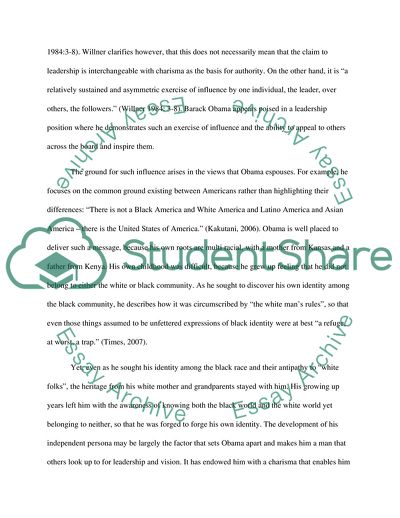Cite this document
(A Political Science Perspective of Charismatic Leadership in regards Essay, n.d.)
A Political Science Perspective of Charismatic Leadership in regards Essay. https://studentshare.org/politics/1713425-a-political-science-perspective-of-charismatic-leadership-in-regards-to-barack-obama
A Political Science Perspective of Charismatic Leadership in regards Essay. https://studentshare.org/politics/1713425-a-political-science-perspective-of-charismatic-leadership-in-regards-to-barack-obama
(A Political Science Perspective of Charismatic Leadership in Regards Essay)
A Political Science Perspective of Charismatic Leadership in Regards Essay. https://studentshare.org/politics/1713425-a-political-science-perspective-of-charismatic-leadership-in-regards-to-barack-obama.
A Political Science Perspective of Charismatic Leadership in Regards Essay. https://studentshare.org/politics/1713425-a-political-science-perspective-of-charismatic-leadership-in-regards-to-barack-obama.
“A Political Science Perspective of Charismatic Leadership in Regards Essay”. https://studentshare.org/politics/1713425-a-political-science-perspective-of-charismatic-leadership-in-regards-to-barack-obama.


